FREQUENTLY ASKED QUESTIONS
We’ve provided these helpful FAQs to make the most out of your time when you visit our site. If you have any questions that are not answered below, please visit our Contact Us page and we will respond promptly.
Why do I have to pay Association Fees?
All owners are required to pay Association Fees by the governing documents of their Association. Owners sign paperwork when they close agreeing that they understand they are subject to all terms of the Association’s Legal documents and what the fees are. The due dates for the fees are established by your Board of Directors. It is typically either annually or monthly, but some Boards establish other due dates. The purpose of the fees is to fund the operation and maintenance of the common property and is used to provide services for the benefit of all owners.
What do the Association Fees cover?
Depending on what Common Areas your community has, they typically pay for common area landscape maintenance, repair and maintenance of pools, playgrounds and equipment, and they provide for improvements desired by the Association and for services to the owners. In townhome and condominium developments, they sometimes pay for water and sewer service, insurance on the building, and trash collection. Additional information can be found in your association's budget.
How do I pay the Association Fees?
The association fees can be paid by bill pay/ACH/e-checks/ and on line by credit card. Owners may elect to pay their Association Fees via check or have the amount withdrawn from their bank account. Checks must include your account number shown on your coupon book and should be mailed directly to the address shown on the coupon. Owners may also apply to have their payments withdrawn automatically from their bank accounts. This eliminates the inconvenience of checks, coupons or timeliness of payment. Please call or e-mail AMS for more details
TO WHOM DO I MAKE MY CHECK PAYABLE?
Your check should be made payable to your Association (e.g.; “ABC Homeowners Association” or “XYZ Condominium Association”)
WHY DO I NEED TO COMPLY WITH THE DEED RESTRICTIONS?
When you purchase a home in a deed restricted community, you automatically agree to comply with the restrictions then in place or that are properly established. This ensures that the integrity of the community is maintained.
WHY DO I HAVE TO GET PERMISSION FOR HOME IMPROVEMENTS?
By obtaining approval before any improvement is made you can be assured that the community standards are maintained for everyone. This avoids the problems that arise from the construction of improvements and the use of colors or styles that conflict with your governing documents.
WHAT IS THE “COMMON AREA”?
It is the land for the use and enjoyment of the members of the Association. This includes facilities like pools and playgrounds in single family communities and hallways, exercise facilities and building structures in condominium and townhome communities.
What does the Association's insurance cover?
The insurance that your Association maintains is determined by your legal documents. The Association's insurance should always include property and casualty policies for all common area property and equipment. (In condominium and townhome associations, this can include the entire structure of the building – again, it will depend on the legal documents.) It also should include Liability and Directors & Officers policies that cover Directors, Committee Members and volunteers working on behalf of the Association.
What is a Homeowners Association (HOA)?
A Homeowners' Association (HOA) is a legal entity created by a real estate developer for the purpose of developing, managing and selling a community of homes. It is given the authority to enforce the covenants, conditions & restrictions (CC&Rs) and to manage the common amenities of the development. It allows a developer to end their responsibility over the community, typically by transferring ownership of the association to the homeowners after selling. Generally accepted as a voluntary association of homeowners gathered together to protect their property values and to improve the neighborhood, a large percentage of U.S neighborhoods where free standing homes exist have an HOA. Most homeowners' associations are non-profit organizations and are subject to state statutes that govern non-profit corporations and homeowners' associations.
What is an Association Management Company and what do they do?
An Association management entity contracted by a Board of Directors or community to provide a variety of services including but not limited to collecting assessments, sub-contractor endeavors, financial advisement and statement/reports preparation and analysis, general maintenance and problem resolution, and advisement on legal and other property related matters. Some of these companies manage hundreds of properties simultaneously, while others focus on individual properties.
What is the Community Manager?
A Manager is a person or entity hired specifically to assist the board of directors in enforcing the documents and managing the assets, funds, and interests of the association.
WHAT IS A PROXY?
An individual appointed to act or vote on behalf of another person by representing them at a meeting of the association. The title can also refer to the written piece of paper granting that power.
WHAT IS A QUORUM?
A Quorum is defined as the minimum number of owners required to hold an official meeting of the association. The number of owners required can vary greatly according to the corresponding association’s governing documents.
WHAT IS A BOARD OF DIRECTORS?
In relation to an HOA, Community or other formal organization, a director is an officer charged with the conduct and management of its affairs. The directors collectively are referred to as a board of directors, and are generally elected or appointed. Sometimes the board will appoint one of its members to be the chair, making this person the President of the Board of Directors or Chairman.
WHAT ARE BYLAWS?
A set of rules or guidelines regarding the operation of a non-profit corporation such as a Board. Bylaws generally set forth definitions of offices and committees involved with the Board of Directors. They can include voting rights, meetings, notices, and other areas involved with the successful operation of the Association.
WHAT ARE CC&RS?
The term CC&R refers to ‘Covenants, Conditions & Restrictions.’ A real covenant is a legal obligation imposed in a deed by the seller of a home and or property upon the buyer of the real estate to do or not to do something. Such restrictions frequently ‘run with the land’ and are enforceable on future buyers of the property. Examples might be to maintain a property in a reasonable state of repair, to preserve a sight-line for a neighboring property, not to run a business from a residence, or not to build on certain parts of the property. Many covenants are very simple and are meant only to protect a neighborhood from homeowners destroying trees or historic things or otherwise directly harming property values. Some can be more specific and strict, outlining everything a homeowner can do to the exterior of their home, including the number of non-familial tenants one may have, acceptable colors to re-paint the home, exactly when holiday decorations are allowed up, automobile placement or repair on property, satellite placement, etc.
What is a Lien?
A monetary claim levied against a property for unpaid mortgage, taxes, contractor work, or other charges. A lien is attached to the property, not the owner, but legally must be recorded in the property records of the county of residence. If a Lien is in place, the property owner has very limited ability to do anything involving the property until the Lien is satisfied or removed.
What is the Declaration?
The Declaration is sometimes referred to as the master deed, documents, or declaration of covenants, conditions, and restrictions [CC&Rs]. It describes an owner’s responsibilities to the association which can include payment of dues and assessments as well as the association’s various duties to the owners. It is common viewed as somewhat of a constitution of the association. The person or group of persons who either signs the original declaration governing the development and association or acquires the original developer’s rights is referred to as the "Declarant."
What is an Estoppel letter?
An estoppel letter is used in a transfer or conveyance of real property prior to the Closing transaction. The document is sent to a bank (or other lender), to an HOA (or Condo Association), to a city/municipality, or a tenant requesting payoff of a mortgage, assessments or taxes due, or rental amounts due on a lease, to incorporate these amounts into the Settlement Statement for the buyer and seller of the real estate. Assessments and payments due must be incorporated into the amounts due at Closing and paid at the time of the Closing. Some amounts may be pro-rated, but all must be included in the Settlement Statement. The estoppel letter is the document that facilitates this process.
WHAT IS AN EASEMENT?
An interest or a right in real property which grants the ability to a landowner to use the land of another for a special purpose or endeavor. An association may for example have an easement for slope maintenance or other repair purposes. A public utility may also have an easement for maintenance or repair work to be executed at a future date.
OUR REVIEWS








